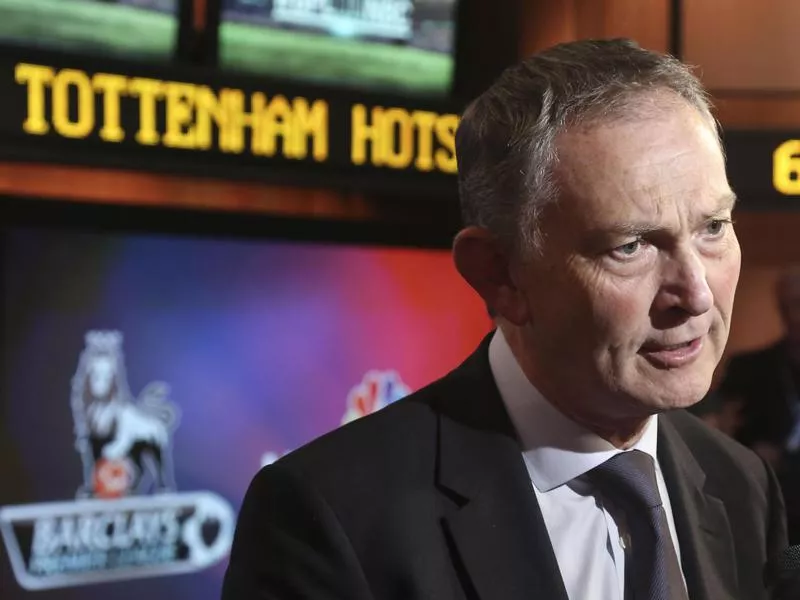
Richard Scudamore, executive chairman and former CEO of the English Premier League, during a 2013 interview at NBC studios in New York. Bebeto Matthews / AP Photo
The Premier League is the most-watched domestic league in world soccer, and the wealthiest, generating $2.2 billion per year in domestic and international television rights. In terms of England, a nation of fading diplomatic and economic influence, football has become a leading cultural export, jumping ahead perhaps even of the music industry that has had such a hold on the world since the 1960s.
Of 20 Premier League clubs, five are owned by American business interests, including Manchester United, bought when the Floridian Glazer family, owners of the Tampa Bay Buccaneers, took a publicly floated company over as a private enterprise in 2005, and Arsenal, now fully in the control of billionaire Stan Kroenke, who also owns the Los Angeles Rams and the Denver Nuggets.
And there are two Russians, with south coast club Bournemouth owned by petrochemical mogul Maxim Demin accompanying Roman Abramovich. Cardiff’s owner is Malaysian tycoon Vincent Tan. Leicester were bought by the late Thai duty free billionaire magnate Vichai Srivaddhanaprabha in 2011. And there are two Chinese-owned clubs in port-city club Southampton and midlanders Wolverhampton Wanderers.
Being part of the cartel conveys great respectability on the owners. The Premier League organization claims to put plenty of work into its “fit and proper person” ownership test, but has opened its doors to the world, unlike, for example, the NFL, whose 32 clubs remain American owned.
“As regards the number of foreign owners, it really isn’t something we concern ourselves about,” said former Premier League chief executive Richard Scudamore in 2017. “What we do concern ourselves with is the owners’ and directors’ test to make sure prospective owners behave properly, operate properly and work within the collective spirit.”
It is a practice that has made many, including Scudamore, very rich indeed.